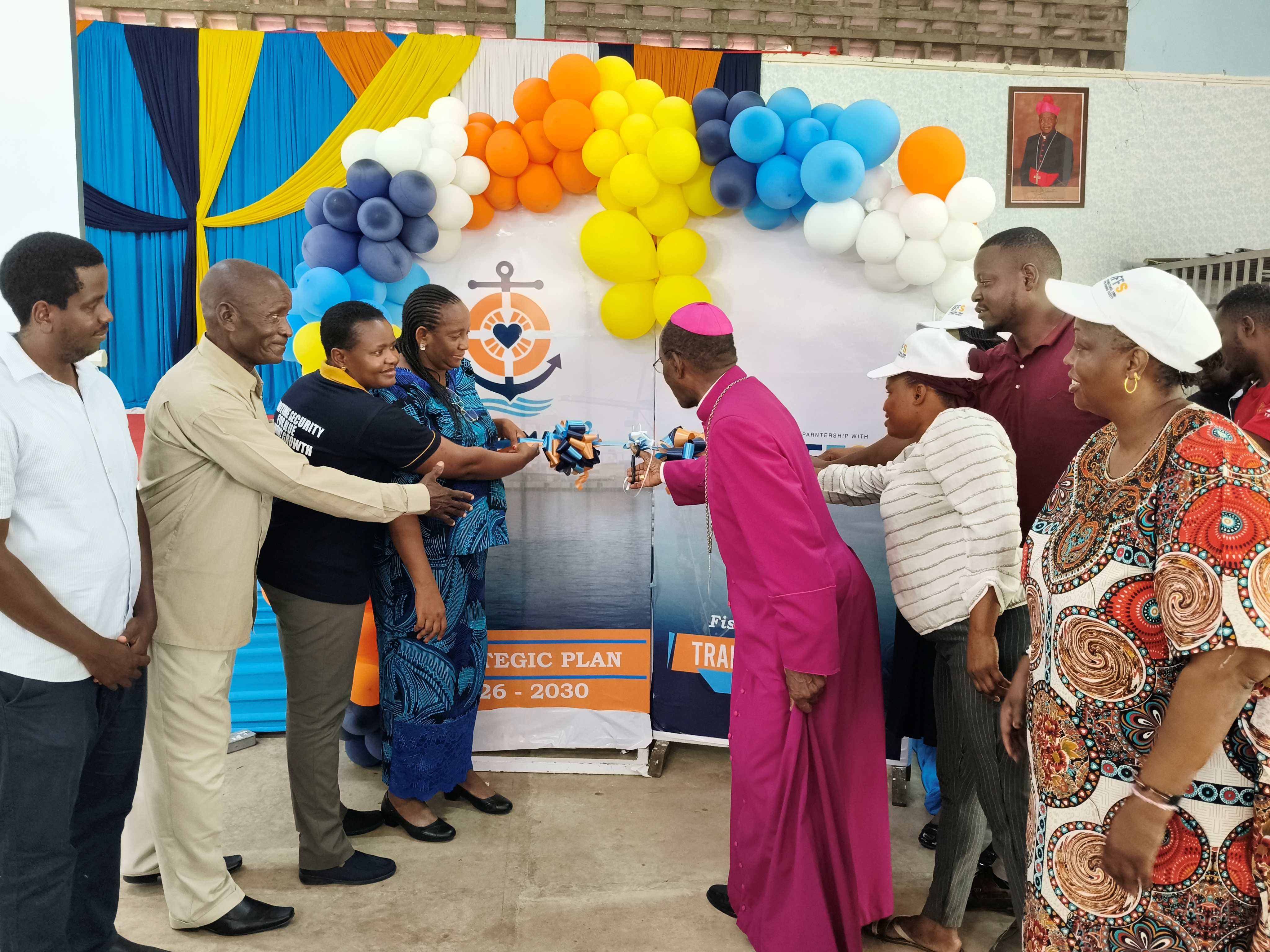
 Mombasa Archbishop and Stella Maris Kenya chairperson Martin Kivuva in Mombasa on Thursday /BRIAN OTIENO
Mombasa Archbishop and Stella Maris Kenya chairperson Martin Kivuva in Mombasa on Thursday /BRIAN OTIENOMany fishermen, especially local ones, ignore
safety guidelines whenever they venture into the sea, resulting in loss of
lives.
Although there is no clear data on the number of fishermen in Kenya who
die at sea or in the lake annually, it is estimated the number constitutes
one per cent of the global fisherfolk.
There are about 39 million seafarers across the world, who
represent 73 per cent of all the global seafarers, according to the International Fund for
Fishing Safety coordinator Alan McCullan.
Brian Mwaguza, the Mombasa Beach Management Unit (BMU)
Network chairman, said most fishermen ignore safety measures leading to a
high number of lives lost at sea.
Speaking during the launch of the Stella Maris training
manual for fisherfolk on safety and the 2026-30 strategic plan in Mombasa on
Thursday, he said the training will help save lives.
“Our people usually think trainings are beyond
their abilities and mainly for the Gen Z, betting on their experience to stay
safe at sea. It is this assumption that they have experience and can manoeuvre their
way out of any situation at sea that brings trouble when issues arise,” Mwaguza
said.
Stella Maris, a Catholic organisation that provides spiritual, social and practical support to
seafarers, fishers and their families, has developed a curriculum
that will train Mombasa fishermen on safety at work.
Stella Maris Kenya chairperson and Mombasa Archbishop
Martin Kivuva said the county has one of the biggest ports in the region and
the blue economy stakeholders need to be empowered to better harness the
potential of the Indian Ocean.
Kivuva called for cooperation to ensure safety of
fisherfolk at sea and on land.
“Our aim is to tell our young people to be ready because
there are many opportunities that are coming by,” he said.
Margaret Masibo, the Stella Maris team lead, said
every fisher who leaves home to go and fish should return home happy and safe.
She said although the region they cover is vast
and depletes resources, they are glad they have touched lives.
“We aim to reduce the deaths at sea. At the moment
they are at one per cent, but we want it to be zero. One per cent is very high,”
Masibo said.
She said all BMUs, apart from training, will also be
equipped with safety gear.
Blue economy, cooperatives, agriculture and
livestock chief officer Roselyne Randu said for a long time the safety of
fisherfolk has not been prioritised.
This is despite them venturing into the sea for two straight weeks before coming back on land.
“Today, we have to ensure the safety of every
fisher person who ventures into the sea, regardless of the status,” Randu said.
Statistics show one per cent of fishers going
into the sea lose their lives.
One life is one too many because that life has at
least five dependents in one way or another.
“Some become sick when they go into the sea yet they
usually do not have doctors or medications on board,” Randu said.
She said the safety curriculum will be a unique
one for fishers because in most cases seafarers are trained at the Bandari
Maritime Academy, which might be too expensive for local fisherfolk, especially
those with advanced years.
“In most cases, people look at fish production ignoring
the safety of the fisherfolk,” Randu said.
Raphael Akuku, the Ugenya BMU secretary
in Siaya county, said safeguarding fisherfolk is key to improving the country’s
economy because they are a key cog in the blue economy sector.
The sector is currently estimated to contribute
about 2.5 per cent of the GDP, $178.8 billion (about Sh23.3
trillion) annually and supports roughly two million jobs.
Akuku said fisherfolk encounter numerous
challenges in the lake including storms but they brave all these to ensure
Kenyans and others abroad have fish on their menus.
“Fisherfolk support the economy and thus need also to be supported in terms of safety,” he said.
Instant Analysis:
At least 100,000 fishers die at sea every year, according to the International Fund for Fishing Safety. However, the number could be more because there is no distinct way to record all the deaths that occur at sea. That is why IFFS coordinator Alan Mccullan says fishing globally is classified as the most dangerous profession.
















